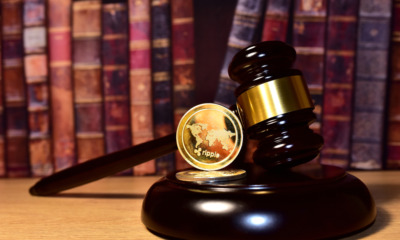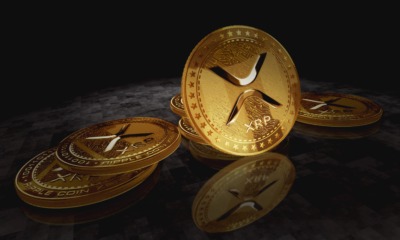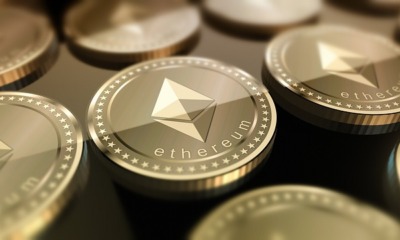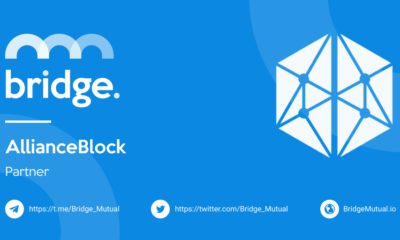Don't Miss
Ripple (XRP) relieves as regulators start to acknowledge crypto’s reality

There is a dilemma in the past few months of whether some specific cryptos such as Ripple’s (XRP) should be classified as securities or not. This debate seems to be coming to an end, and that’s good news for the crypto. It appears that regulatory bodies are beginning to acknowledge the fact that cryptocurrencies can’t function without blockchain. The two are attached and can’t be separated if decentralization is to be actualized.
Ripple as a company scored a little, finally, as on Wednesday, August 29th, its efforts to combine multiple cases filed against it got proceeded successfully.
A Superior Court of California labeled a suit against Ripple (by an investor named David Oconer) as the ‘complex litigation,’ which means the case will now get coordinated alongside other suits against Ripple (XRP), and not separately.
So, does this suggest that regulators might be starting to realize Ripple’s XRP and cryptocurrencies’ reality in general? We’ve reasons to believe so, let’s shed some lights on them concerning a couple of things from the recent past.
So, over the past few months, the crypto sphere hasn’t been favorable for investors worldwide, and worst of it all is that investors are beginning to have doubts due to the pending regulatory measures.
However, even regulatory bodies do not really understand the differences between blockchain and cryptos and how they work. As a result, regulatory authorities aren’t still certain on the cryptos to regulate.
In the recent past, Sopnendu Mohanty, the chief Fintech head at the Monetary Authority of Singapore, addressed central banks, international development officials, and other attendees at the G20 forum. He stated that utility tokens or cryptocurrencies are a critical aspect of the decentralized system that shouldn’t be overlooked.
How regulators can solve the pending debate
Mohanty’s statements came at the time when the discussion on how regulations can be made and which cryptos should be categorized as securities caused lots of arguments. An end to the debate and the restructuring of regulatory policies will benefit Ripple and the crypto market being that cryptocurrencies are utilities and are,
“Incentives and security models upon which open, permissionless and censorship-resistance transaction-recording systems are built.”
When regulatory bodies begin to understand the importance of cryptos and how technically coordinated there are, then, they might start supporting these tokens.
And of course, the only way to support these coordinated cryptos is to bring great regulations that would enhance their growth – which is the only way that could solve the problem between authorities and the use of digital currencies.
The viewpoint of regulators and Ripple’s problem
It is important to know that authorities and regulators are beginning to understand blockchain and cryptos than they did in the past.
They also know that these cryptos have real-life problems that they want to solve. With that in mind, authorities and regulators can manage cryptos by making use of anti-laundering laws. Categorizing them as either a security or not seems out-of-date.
Furthermore, regulators are making plans to portray Initial Coin Offerings as scams in which investors need to be aware of.
On the other hand, a major problem like that Ripple has is the debate that it needs to meet some criteria before it can be listed on major exchanges. With the fact that regulators seem to understand the reality of cryptocurrencies, then, it would be easier for Ripple’s XRP to achieve certain milestones that seem unachievable.
The Standpoint of SEC on ICOs and Exchanges
The US SEC seems to be acting slow with lots of exchanges and cryptocurrencies migrating to countries that are welcoming. However, because authorities are getting knowledgeable about blockchain and cryptos, there could be a U-turn in the future.
SEC on its own have defined what it means if a digital token is a security or not, and regulatory bodies are making sure they make good policies. However, the acknowledgment of regulators will foster the growth of the crypto market and also bring back the confidence investors once had.
The difference between Ripple and XRP (again)
Recently, Ripple tried to let everyone know the difference between Ripple (the company) and XRP (its cryptocurrency). The statement was reported by The Hatch Agency, a company that represents Ripple. The company stated that,
“Ripple is a technology company that solves the problem of cross-border transactions. While XRP is an independent digital asset. The XRP ledger is the open-source blockchain behind it.”
Chief marketing strategist of Ripple further added,
“XRP is a digital asset that trades on its own that’s owned by lots of people in lots of places. We happen to own a lot of XRP – we own a lot of cash, chairs, and computers – but the company is called Ripple and we sell software.”
The reason why the company decided to make these statements is that SEC did not add both Ripple and XRP in its June announcement on the position of Bitcoin and Ethereum. However, with the fact that regulators seem to be informed better about the reality of digital tokens now, it is going to be a relief for Ripple.
If the authorities can probably proclaim Ripple as not a security, then, it indeed will be good news for investors.
Final words
Since regulators are beginning to get informed about blockchain and cryptos, and also taking the step to distinguish between safe and unsafe cryptos and ICOs, we could see a big crypto bull run soon. And of course, the latest win by Ripple in California court can be regarded as the first step in favor of the blockchain firm.
For the latest cryptocurrency news, join our Telegram!
Disclaimer: This article should not be taken as, and is not intended to provide, investment advice. Global Coin Report and/or its affiliates, employees, writers, and subcontractors are cryptocurrency investors and from time to time may or may not have holdings in some of the coins or tokens they cover. Please conduct your thorough research before investing in any cryptocurrency and read our full disclaimer.
Photo by Natalia Figueredo on Unsplash
Don't Miss
A Guide to Exploring the Singaporean ETF market

Singapore’s Exchange Traded Fund (ETF) market has grown, offering investors diverse investment opportunities and access to different asset classes. As the market evolves, investors must navigate these uncharted waters with a clear understanding of Singapore’s ETF landscape. This article explores the trends, challenges and strategies for navigating the Singapore ETF market. To start investing in ETFs, you can visit Saxo Capital Markets PTE.
The Singaporean ETF Market: Exponential Growth
The Singapore ETF market has seen significant growth in recent years, with an increasing number of ETFs covering a wide range of asset classes and holders. different investment topics.
One of the notable trends in the Singapore ETF market is the growing diversity of available options. Investors can now choose from ETFs that track domestic and international stock indexes, bonds, commodities, and specialist sectors or themes. This diverse range of ETFs allows investors to create comprehensive portfolios tailored to their investment goals.
The growth of the ETF market in Singapore is also due to growing investor demand for low-cost, transparent, and accessible investment vehicles. ETFs offer benefits such as intraday liquidity, real-time pricing, and the ability to trade on exchanges. These characteristics have made ETFs attractive to retail and institutional investors who want exposure to different asset classes.
Regulatory Landscape and Investor Protection
The Monetary Authority of Singapore (MAS) is the…
Don't Miss
Property Loans for Foreigners in Singapore That You Must Know About

Intending to invest in a residential or commercial property in Singapore?
When it comes to foreigners applying for a loan in Singapore, things can be pretty hard regardless of the reason whether you need the property for personal or business purposes.
In Singapore, buying a property is challenging, whether you are a foreigner or a native, and sometimes applying for a loan is the only way for you to afford it.
HOW MUCH CAN YOU BORROW FOR A PROPERTY LOAN IN SINGAPORE?
As for the Foreigner Loans, in Singapore, there is an exact amount of money you can borrow to finance the purchase of a property.
In this sense, Singapore has the Loan to Value Ratio (LTV).
The LTV ratio is what determines the exact amount of money you can borrow for a property loan, which changes depending on where you try to obtain the loan:
- If you are applying for a bank loan, you can borrow a maximum of 75% of the value of the property you want to purchase. That means if you are looking for a property that costs $500.000, the maximum amount of money a bank lender can give you like a loan in Singapore is going to be $375.000.
- When you are applying for a loan with a Housing…
Don't Miss
CoinField Launches Sologenic Initial Exchange Offering

CoinField has started its Sologenic IEO, which is the first project to utilize the XRP Ledger for tokenizing stocks and ETFs. The sale will last for one week and will officially end on February 25, 2020, before SOLO trading begins on the platform. Sologenic’s native token SOLO is being offered at 0.25 USDT during the IEO.
Earlier this month, Sologenic released the very first decentralized wallet app for SOLO, XRP, and tokenized assets to support the Sologenic ecosystem. The app is available for mobile and desktop via the Apple Store and Google Play. The desktop version is available for Windows and Mac.
“By connecting the traditional financial markets with crypto, Sologenic will bring a significant volume to the crypto markets. The role of the Sologenic ecosystem is to facilitate the trading of a wide range of asset classes such as stocks, ETFs, and precious metals using blockchain technology. Sologenic is an ecosystem where users can tokenize, trade, and spend these digital assets using SOLO cards in real-time. The ultimate goal is to make Sologenic as decentralized as possible, where CoinField’s role will be only limited to KYC and fiat ON & OFF ramping,” said CoinField’s CEO…
-

 Blogs6 years ago
Blogs6 years agoBitcoin Cash (BCH) and Ripple (XRP) Headed to Expansion with Revolut
-

 Blogs6 years ago
Blogs6 years agoAnother Bank Joins Ripple! The first ever bank in Oman to be a part of RippleNet
-

 Blogs6 years ago
Blogs6 years agoStandard Chartered Plans on Extending the Use of Ripple (XRP) Network
-

 Blogs6 years ago
Blogs6 years agoElectroneum (ETN) New Mining App Set For Mass Adoption
-

 Don't Miss6 years ago
Don't Miss6 years agoRipple’s five new partnerships are mouthwatering
-

 Blogs6 years ago
Blogs6 years agoCryptocurrency is paving new avenues for content creators to explore
-
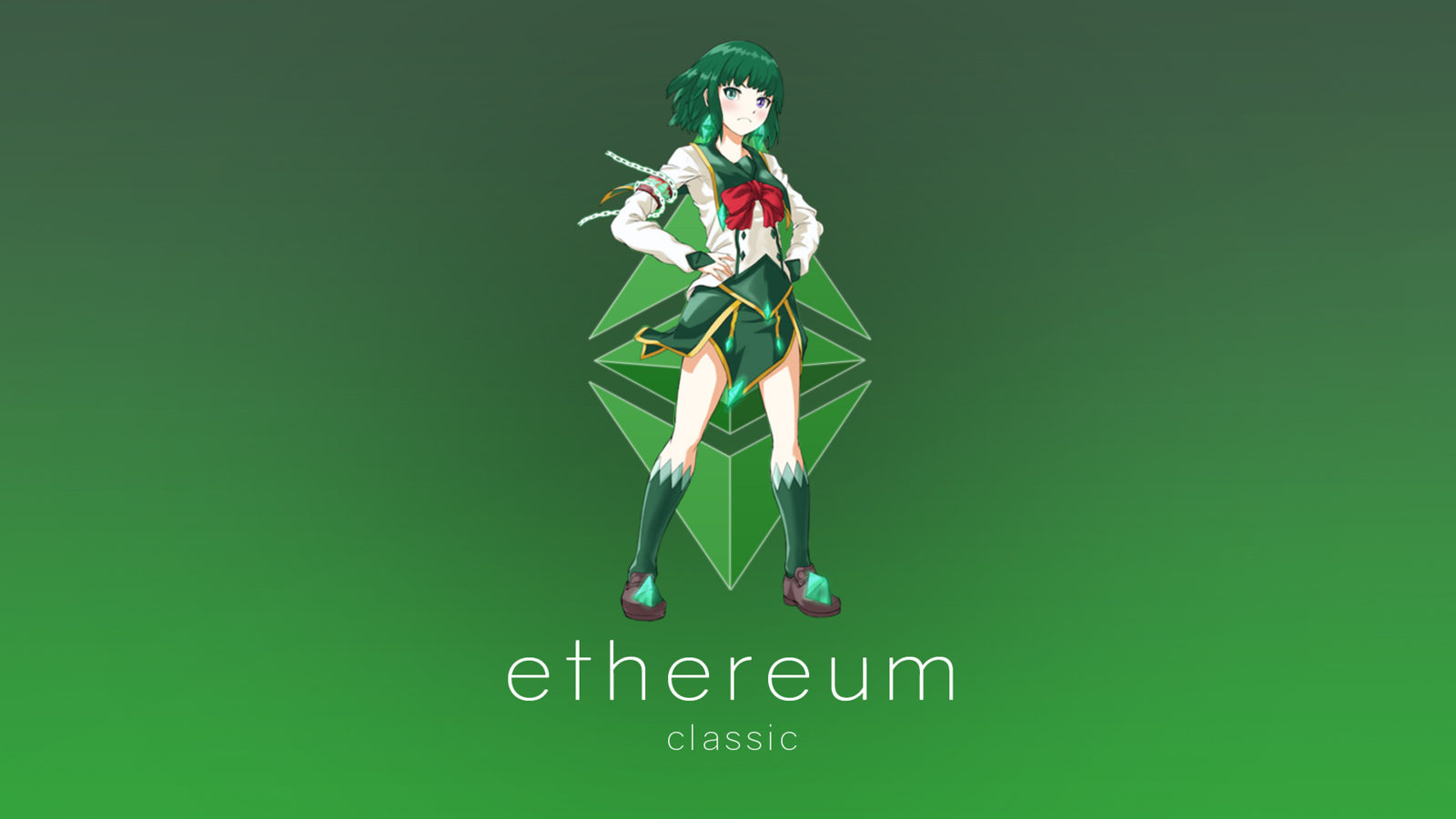
 Blogs6 years ago
Blogs6 years agoEthereum Classic (ETC) Is Aiming To Align With Ethereum (ETH)
-

 Blogs6 years ago
Blogs6 years agoLitecoin (LTC) Becomes Compatible with Blocknet while Getting Listed on Gemini Exchange

